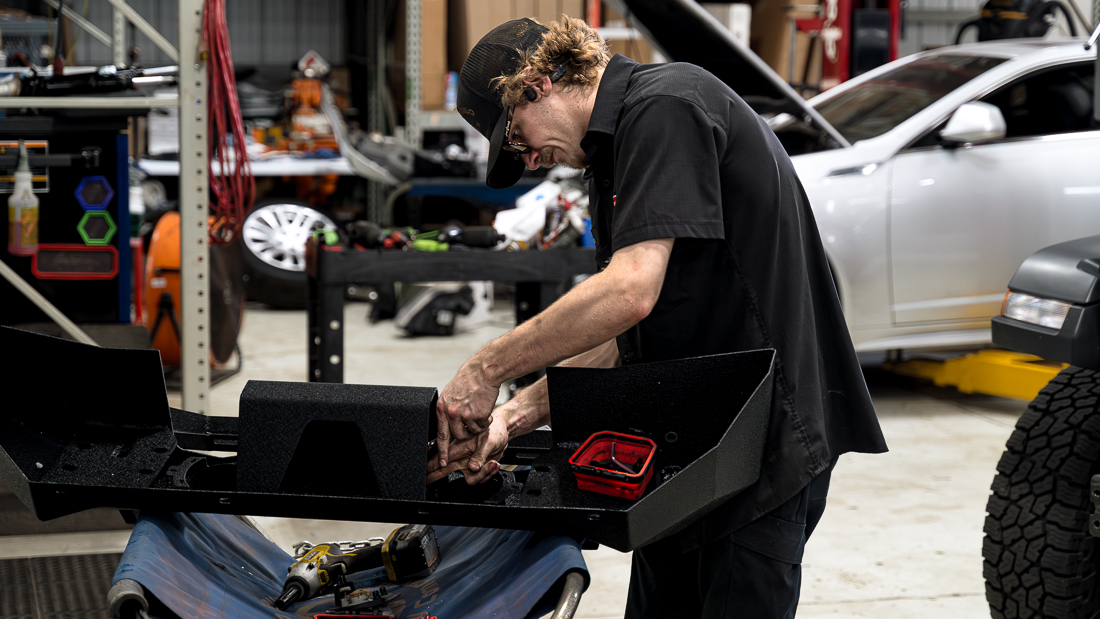
Part Installation
Schedule Service
Professional Part Installation
At Pickups Plus Cars our skilled technicians ensure the proper and efficient integration of new components into a vehicle. Whether it's routine maintenance parts like air filters, and brake pads, or more complex elements such as alternators, starters, or suspension systems we offer precise and efficient replacement services.
Our techs follow manufacturer specifications, utilizing specialized tools and equipment to dismantle and replace worn-out or faulty parts. This includes precise installation and rigorous testing to guarantee the seamless functioning of the newly installed components. Timely part replacements enhance the vehicle's longevity and contribute to optimal performance and reliability.
Professional Part Installation and Repairs
-
Brake System Installation
Our skilled technicians ensure the proper installation of critical components like brake pads, rotors, calipers, and brake lines, following manufacturer specifications and guidelines. We also offer brake fluid flushes and master cylinder replacements to maintain or enhance the vehicle's braking efficiency.
-
Suspension Component Installation
Suspension component installation involves the replacement or upgrade of parts including shocks, struts, control arms, and bushings. Our techs focus on precise installation to ensure proper wheel alignment, stability, and overall ride comfort. We address issues such as worn-out suspension components, uneven tire wear, and handling concerns.
-
Engine Component Installation
Engine component installation services encompass the replacement or installation of various engine-related parts such as alternators, starters, water pumps, and timing belts. Our technicians follow manufacturer guidelines to install these critical components, ensuring proper alignment, tension, and functionality.
-
Filter and Fluid System Installation
Filter and fluid system installation services cover the replacement of filters such as air filters, oil filters, and fuel filters, as well as the installation of various fluids, including engine oil, transmission fluid, and coolant. Our technicians focus on the proper disposal of old filters and fluids, precise installation of new components, and adherence to recommended service intervals.
Common Part Installation Questions
How often should I replace my vehicle's air filter, and can I do it myself?
The frequency of air filter replacement depends on driving conditions and the manufacturer's recommendations, typically ranging from 12,000 to 15,000 miles. DIY replacement is feasible for many vehicle owners; however, professional automotive part installation services ensure precise fitting and adherence to manufacturer specifications. Technicians can also inspect other components during the service, providing a comprehensive assessment of the vehicle's overall health.Can I install aftermarket brake pads on my own, or is professional installation necessary?
While some individuals may choose to install aftermarket brake pads themselves, professional installation is recommended. Professional installation services for brake pads ensure proper fitting, correct torque specifications, and adherence to safety standards. Technicians also inspect the entire brake system during installation.What are the signs that my vehicle's suspension components need replacement, and can I upgrade them myself?
Signs of worn suspension components include uneven tire wear, a bumpy ride, or handling issues. While suspension upgrades can enhance performance, it's advisable to seek professional automotive part installation services. Technicians can accurately diagnose the specific components requiring replacement, ensuring precise installation and proper alignment.How often should I change the engine coolant?
The recommended interval for engine coolant replacement varies by vehicle and coolant type but is typically around every 30,000 to 50,000 miles. Our technicians ensure proper draining, flushing, and filling of the coolant, preventing air pockets and maintaining the correct coolant-to-water ratio.
Contact form
Contact Form Services




